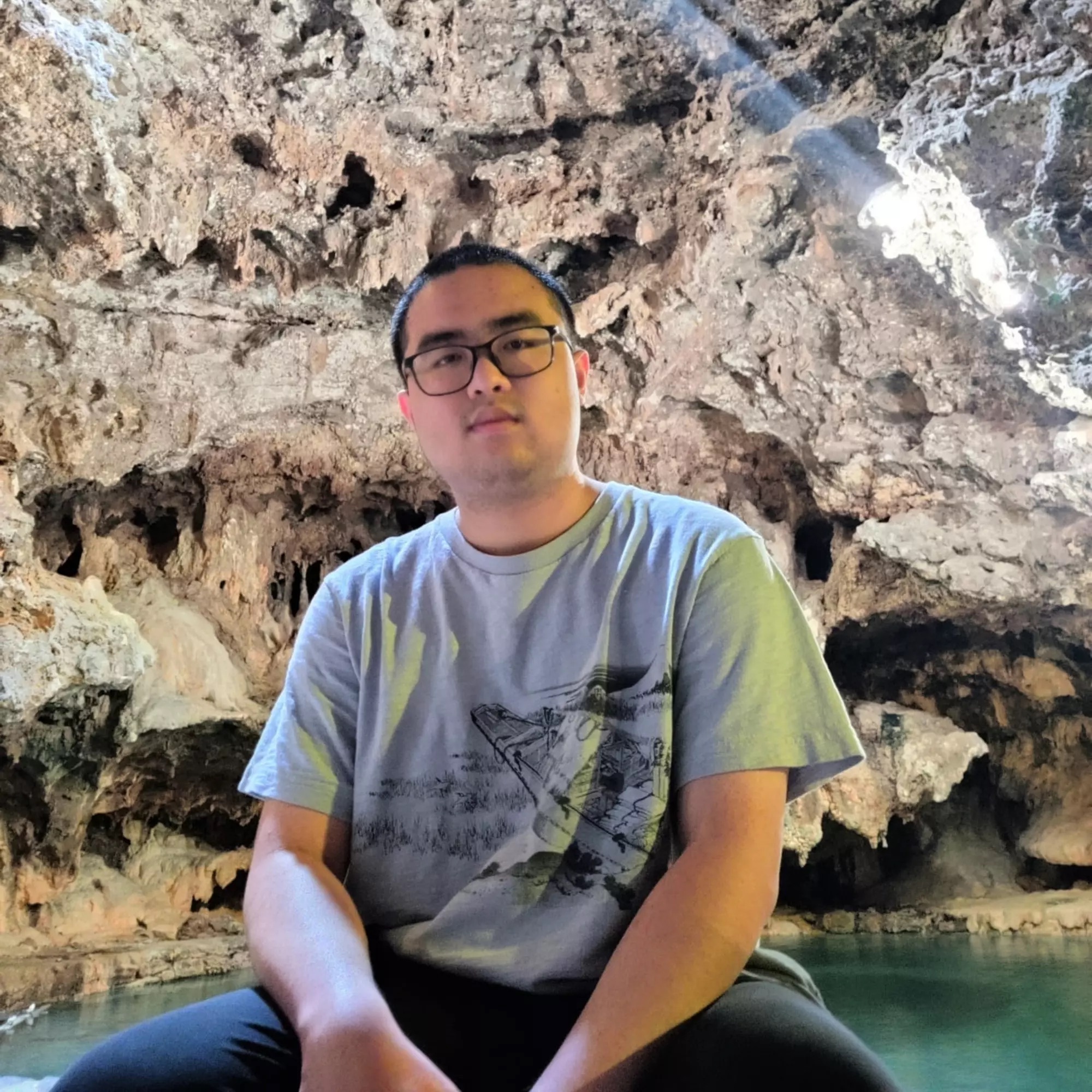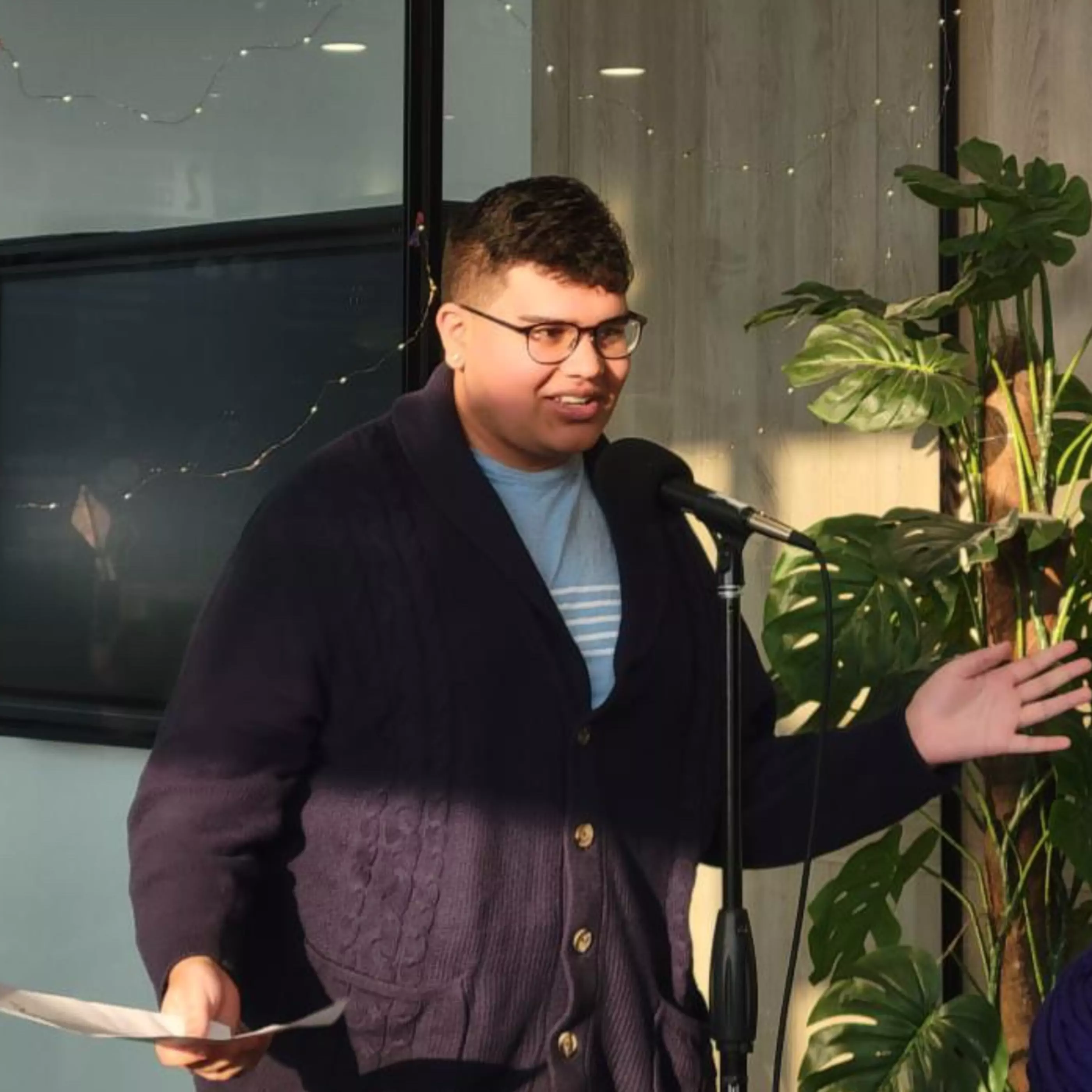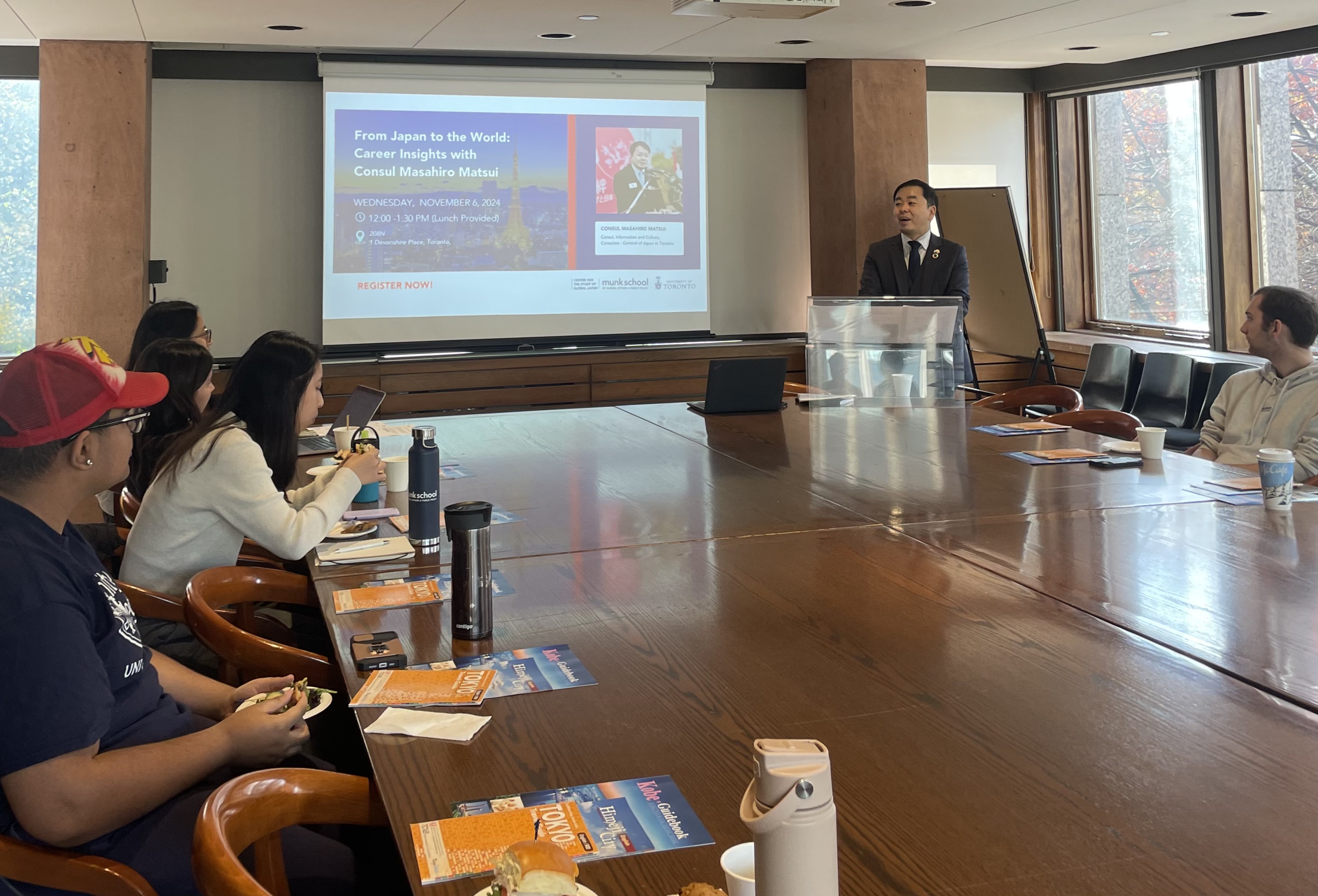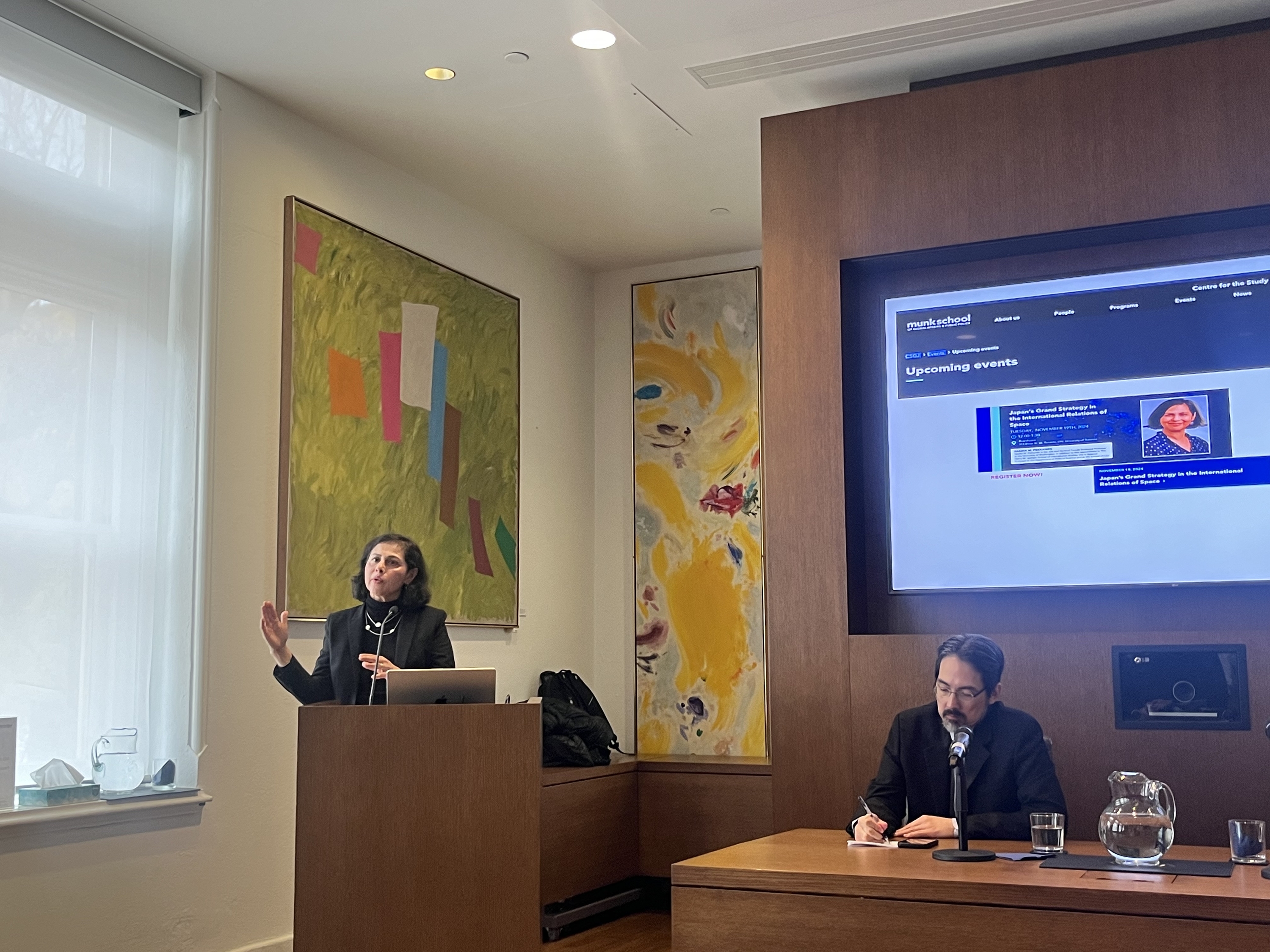
CSGJ Student Affiliate Reflections: Fall 2024
October 8th: “A New Chapter in Canada-Japan Relations” with Ambassador Kanji Yamanouchi

Jackie Pang (Political Science, East Asian Studies ‘25)
"Ambassador Yamanouchi’s speech was very informative and inspirational. He stressed the need for Canada and Japan to upgrade and strengthen their relationship and cooperation. He also made insightful comments on things Canada could work on, such as regulatory regimes, energy policies, and Indigenous relations. One key takeaway was that Canada and Japan are facing similar global challenges, from climate change to geopolitical security concerns, highlighting the importance of the two countries working together to address these issues. Another key takeaway was the importance of people-to-people exchange between Canada and Japan. Ambassador Yamanouchi mentioned the JET program, as well as many other opportunities, for Canadians to experience Japan. Overall, the event deepened my understanding of Canada-Japan relations and reinforced the idea that Canada and Japan must work together to navigate today’s geopolitical environment. And I am very happy to see that the Japanese government is committed to making a giant leap forward in enhancing the bilateral relationship between Canada and Japan."
If you missed the event and would like to watch it, the recording can be found here. All CSGJ event recordings can be found on our Recorded Events page.
October 19th: “From Kishida to Ishiba: Where is Japan Heading?” Webinar
Sarah Padwal (International Relations, Peace Conflict and Justice, Contemporary Asian Studies ‘27)

“2024 is a crucial year for global democracy, with citizens headed to the polls in over 50 countries. On October 27th, Japan will officially join this list of countries, holding an important election following the resignation of Prime Minister Kishida due to a corruption scandal, and the subsequent selection of current LDP Prime Minister Ishiba. On October 17th, the CSGJ held an event in collaboration with UBC, titled “Japanese Politics at a Crucial Transition Point,” discussing recent Japanese politics and the path towards the October 27th election. Five speakers, from institutions in Japan, the US, and Canada, analyzed the election from different angles, offering a comprehensive understanding of the situation.
I went into this event with very little background knowledge, and yet the speakers offered enough context throughout the event that I found myself following along quite easily. While I enjoyed listening to all the experts speak, I particularly enjoyed Dr Rieko Kage and Dr Kay Shimizu’s gendered perspective of the election. Addressing public support for female legislators and the gender wage gap respectively, the two scholars offered important insights about perceptions of women in Japanese society. Dr Shimizu’s mention of large corporations abusing the wage differential, by hiring more female employees as they can justify their lower pay, particularly stood out to me. Of course, as an International Relations student, I was also very interested in Professor Lipscy’s discussion of foreign policy. His mention of Ambassador Yamanouchi’s recent visit to the Munk School offered an optimistic note for the future of Japanese-Canadian relations, one that is needed in a particularly tumultuous time for Canada’s relations with other Asia-Pacific countries. After attending this event, I can confidently say that I am prepared to follow the election, anticipating the results of October 27th and beyond to see how the future of Japanese politics will unfold.”
If you missed the event and would like to watch it, the recording can be found here. All CSGJ event recordings can be found on our Recorded Events page.
October 21st: “Japan’s Quiet Leadership: Reshaping the Indo-Pacific" with Mireya Solis
Rayn Lakhani (Munk One, Contemporary Asian Studies ‘28)

“In Dr. Solis’ engaging talk, she posed the topic that many in the world of global affairs are concerned about — the era of uncertainty surrounding the future of economics and security. Regarding Japan, she asks two critical questions. Firstly, how can we explain the re-emergence of Japan after the lost decades, and further how can Japan continue this cycle given its current problems? Dr. Solis’ talk sheds light on Japan’s impressive resurgence amid rising global uncertainties. As the U.S.-China rivalry intensifies and economic security becomes paramount, Japan has repositioned itself as a key U.S. ally in the Indo-Pacific. It now plays a proactive role, especially in areas like technology and supply chain security. Internally, Japan has avoided the polarization and populism that challenge many democracies, enabling stable governance and decisive policy shifts. Strong leadership and strategic partnerships, like its Quad involvement and digital governance efforts, have strengthened Japan’s influence. Moving forward, Japan faces the challenge of balancing its economic ties with China while aligning with U.S. priorities, aiming to secure its position in an increasingly fragmented global order.”
If you missed the event and would like to watch it, the recording can be found here. All CSGJ event recordings can be found on our Recorded Events page.
November 6th: “Career Reflections with Consul Masahiro Matsui”

Rayn Lakhani (Munk One, Contemporary Asian Studies ‘28)
“Consul Masahiro Matsui's talk deeply moved me, especially his reflections on his work in Gaza. Hearing about his firsthand efforts to support vulnerable communities in one of the world's most challenging regions was both humbling and inspiring. His emphasis on Japan’s commitment to “leaving no one behind” resonated profoundly with me — it’s a vision of peace that feels so urgent in today’s fractured world. How often does the global citizen stop to consider the invisible lives that are collateral to conflict and instability? Matsui's approach reminded me that peace is not an ideal but a duty. Can you imagine how much better the world would be if more countries followed Japan's ethos with quiet determination to help those who needed it most?
Beyond this, I couldn't help but reflect on the prosperous relationship between Japan and Canada. Both countries have an exceptional chance to build joint growth, trust, and exploration, especially in light of global turbulence. The connection seems natural, from the cultural exchange enabled by the JCC to partnerships in transit-oriented development that shape cities with greater sustainability. None of these are solely for economics or policy, but they are of shared values and mutual respect. How can we, as individuals, encourage more of these bridges to be built? The bond between Japan and Canada feels like a reminder that even in unpredictable times, trusted relationships can anchor progress and inspire innovation.”
November 19th: “Japan’s Grand Strategy in the International Relations of Space” with Saadia Pekkanen
Rayn Lakhani (Munk One, Contemporary Asian Studies ‘28)

“Professor Pekkanen’s discussion about Japan’s growing influence in space and its role in shaping the international order was nothing short of fascinating. What grabbed my attention the most was that Japan has emphasized using its space technology for peaceful purposes, such as disaster management and climate monitoring, while positioning itself as a key player in space diplomacy. How does the country balance technological ambition against a commitment to global cooperation? It appears that Japan has found its answer by leveraging its space capabilities in a manner designed to establish trust and collaboration at the international level. What fascinated me most was the strategic partnerships that Japan has developed, such as the Artemis program with NASA and its leadership in mitigating space debris. These are not meant for Japan's benefit alone but to set a precedent for other countries on how to responsibly navigate the contested domain of space. As I listened, I couldn't help but wonder if this is what the future of the international order looks and feels like, countries like Japan leading from the front for innovation based on mutual respect.”
We look forward to seeing your reflections in the Winter 2025 semester!

